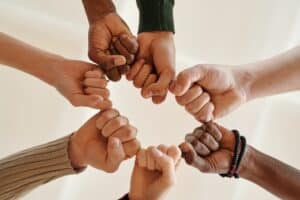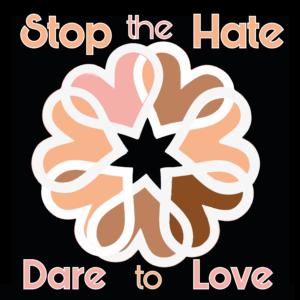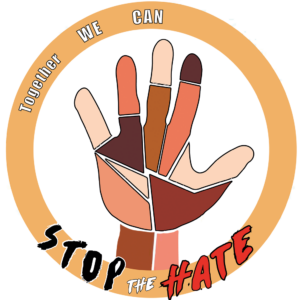
Los actos de odio y racismo han existido de muchas maneras a lo largo de la historia, mismos que siguen creciendo y cobrando millones de vidas de inocentes, y aunque es imposible reparar la pérdida de un ser querido, es necesario buscar medidas para formar una sociedad más sensible y cambiar el odio por actos de sanación y compensación que logren asegurar un mejor futuro para cualquier persona.
Así lo señalaron expertos durante una conferencia de prensa organizada por Ethnic Media Services, quienes señalaron que documentar y validar los actos que generan traumas a las personas dañadas, son pieza clave para poder sensibilizar a la sociedad y generar cambios.
Helen Zia, autora y fundadora del Instituto Vincent Chin, refirió que los actos de odio deben ser tomados para un proceso de aprendizaje y cambio, como fue el caso de Vincent Chin, un joven que murió a golpes por dos hombres que lo culpaban por su situación económica, fue un acto de odio hacia Japón, pero que cobró la vida de un inocente asiático-americano.
Para Zia, el proceso de sanación fue a través de una comunidad fortalecida al crear nuevas organizaciones, formar nuevas generaciones de activistas trabajando juntos contra el racismo, la injusticia y el odio. «Eso es lo que se ha generado como un acto de unión».
«Hoy comienzo a hacer algo, es parte de mi trabajo, el documentar esto. Pero también ser un agente activa para el cambio, utilizando mis conocimientos periodísticos para hacer que la comunidad sea escuchada, para ayudar a la mamá de Vincent Chin que estaba dispuesta a hablar por medio de su sufrir y pasó a ser un ejemplo para la comunidad asiático americana», subrayó.
James Taylor, Profesor de Historia Afroamericana, habló sobre los actos de odio que han dañado a las comunidades a través de la historia, como fue la esclavitud que duro muchos años. Pero esto solo es un hecho de muchos que han sufrido los afrodescendientes, por eso deben existir medidas legales que busquen reparar estos actos, no como un favor sino como una compensación ante el daño realizado.
«Las reparaciones se tratan de sanar y reconciliar, arreglar lo que se ha roto. Y la verdad es que las personas afrodescendientes parece que siempre están lastimados», puntualizó.
Para el profesor Taylor, los actos de reparación en la sociedad ya están presentes y hoy no hay nada que los pueda detener. Se debe apoyar a todas las comunidades para seguir avanzando, no solo en la sociedad sino también de manera legal ante los gobiernos.
Por su parte, Nestor Fantini, editor y sociólogo, ex preso político en Argentina, compartió su experiencia en el país sudamericano y cómo vivió actos inhumanos durante este tiempo.
«Secuestraban a las personas y las llevaban a campos de concentración, había más de 300 mil personas desaparecidas y quinientos bebés que fueron secuestrados», dijo.
El sociólogo compartió un dicho que escucho en una conferencia en Sudáfrica: «sólo el individuo que sufrió el daño tiene la autoridad de perdonar, nadie solo él. Forzar a una víctima que tome cierta decisión es revictimizar a quien lo sufrió. El estado o el juez no, sólo el individuo puede perdonar», puntualizó.
Para Fantini, los actos de reparación son necesarios, sin embargo, no se puede reparar la vida de alguien que ya la perdió, jamás se logra reparar la ausencia de un ser querido, pero no se puede encerrar la sociedad en estos hechos, hay que hablar de lo vivido para que los demás conozcan lo que sucede y los culpables sean castigados ante la ley.
Los especialistas coincidieron en que las reparaciones no son el resultado de los actos de odio, son las consecuencias de lo que se ha vivido, por eso es necesario documentar, exponer estos actos y analizarlos a través de la historia para lograr entender mejor, y así buscar medidas que restauren a las comunidades lastimadas.
Las compensaciones para reparar los actos de odio son necesarias, ignorar u olvidar solo dejarían más espacios para continuar lastimando a inocentes, sin embargo no se debe centrar el tema en cómo compensar a la sociedad, es necesario generar actos que prevengan el odio hacia las comunidades vulnerables, formar una sociedad basada en el respeto, tener medidas que garanticen la justicia legal, apoyar a asociaciones que fomentan la igualdad y lograr involucrar a los gobiernos para formar parte de la solución, es en lo que debemos voltear a ver como sociedad.


This publication was supported in whole or part by funding provided by the State of California, administered by the California State Library.

Te puede interesar: Preocupa a estadounidenses que tecnologías IA empeoren el odio y acoso en la sociedad

